The International Court of Justice (ICJ) was one of the six organs created when the United Nations (UN) was founded in 1945. Its role is to resolve tension and conflict between different states.
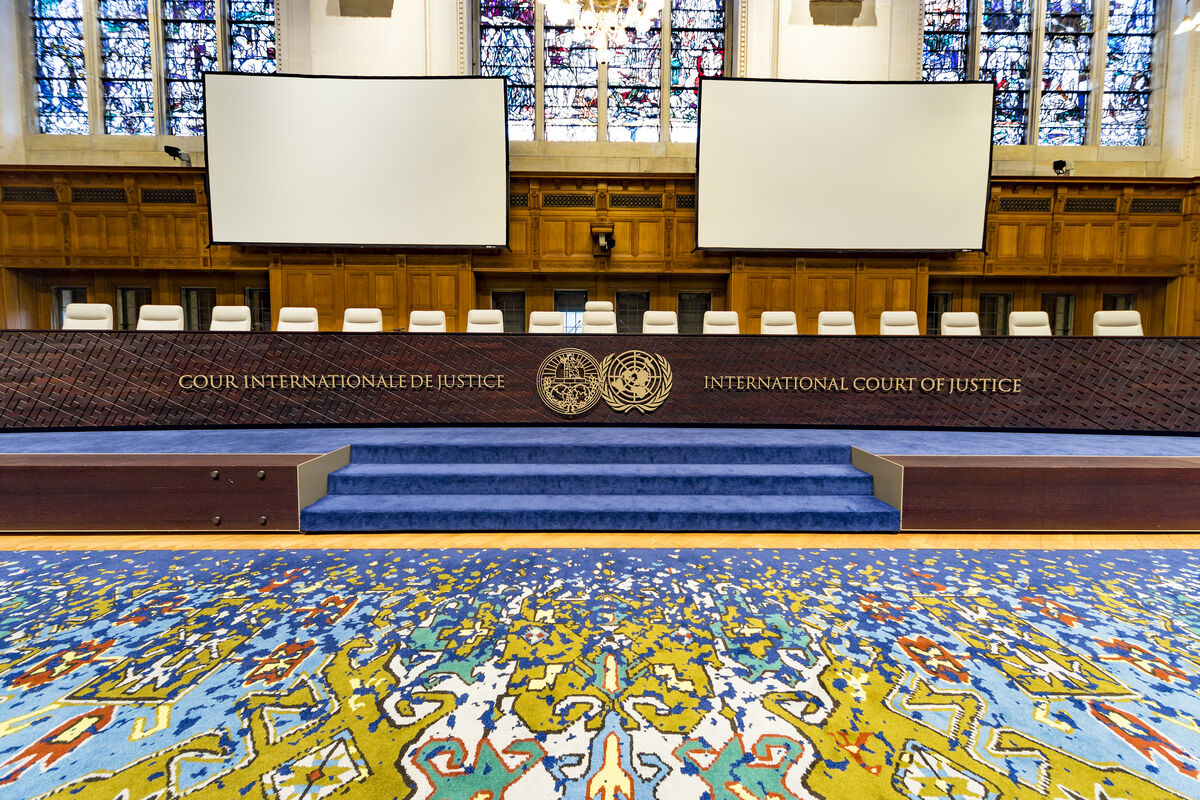
The seat of the ICJ is located in The Hague in the Netherlands.
Source: Ankor Light, Shutterstock.com
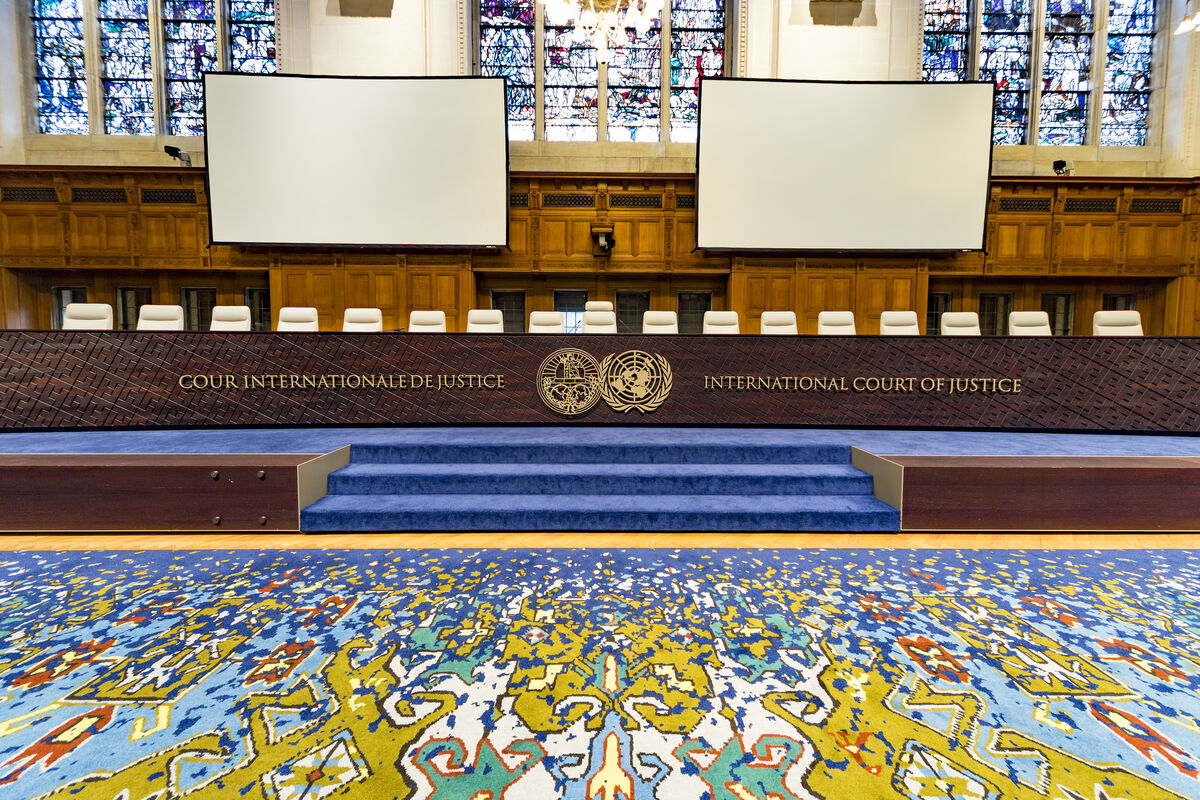
The seat of the ICJ is located in The Hague in the Netherlands.
Source: Ankor Light, Shutterstock.com
The International Court of Justice (ICJ) was one of the six organs created when the United Nations (UN) was founded in 1945. Its role is to resolve tension and conflict between different states.
- A state is a territorial and political entity administered by a government. It has defined borders within which a population lives.
To better understand what a state is, you can watch the video What is… a State?.
- An institution is an organization governed by rules and laws that plays a specific role in society. Its role may be political, social, economic, religious, etc.
To better understand what an institution is, you can watch the video What is… an institution?.
Based on international law, the ICJ uses peaceful, non-violent methods to settle disputes between states. These include:
-
Mediation: negotiation between disputing states that involves a mediator, meaning a neutral person who does not take sides
-
Arbitration: negotiation between states in disagreements involving a conciliator, i.e. a person who acts as a facilitator between two disputing people or groups.
-
Regional treaties: agreements between states in the same region of the world to facilitate the transport of goods and the exchange of services or money
International law combines the rules and norms that govern relations between states, individuals and organizations on the international level. These laws cover a wide range of issues such as the environment, trade, transport of goods and services, human rights, etc.
On November 25, 1981, Canada and the United States asked the International Court of Justice to settle a dispute over the fishing zones they shared because of their proximity to the Gulf of Maine. Members of the jury met to decide on the maritime boundaries separating each country. They delivered their judgment on October 12, 1984.
On August 14, 1953, France asked the International Court of Justice to settle a dispute it had with Lebanon over an electricity company called Électricité de Beyrouth. After a few months, France and Lebanon eventually agreed on a joint solution. The case was closed on July 29, 1954.
The ICJ settles disputes between states only when they call upon it to do so. International organizations such as the World Health Organization (WHO) may also ask the ICJ to make a decision on global security issues.
On August 27, 1993, the World Health Organization (WHO) asked the International Court of Justice for its opinion on the use of nuclear weapons in war. The WHO was considering whether it had the power to ban their use because of their harmful effects on human health and the environment. The ICJ ruled that the regulation of nuclear weapons fell under the scope of the United Nations (UN).
International criminal tribunals (ICTs) were created by the United Nations in 1991 following the civil wars in the former Yugoslavia (1991 to 1999) and Rwanda (1994). They convict criminals (individuals or groups of individuals) who violate international humanitarian law (IHL).
-
A civil war is an armed conflict between civilians or military groups from the same state.
-
International humanitarian law (IHL), also referred to as the laws of armed conflict or the law of war, determines the basic rules to be respected during war, including the treatment of wounded soldiers and prisoners of war, the prohibition of deliberate attacks on civilians and the prohibition of certain types of weapons. It aims to protect people who are not or are no longer participating in the war.
IHL is only applied in times of war, unlike international law which is always enforced.
Below are the main charges tried by the ICT:
-
Crimes against humanity such as slavery, torture, murder, deportation (relocation of a population against their will), persecution
-
Genocide, (planned elimination of an entire group or people)
-
War crimes such as murder, abuse and deportation of persons who are not or are no longer involved in the war
International criminal tribunals are temporary. This means that they only exist for the duration of a trial, which can last several years. For example, the International Criminal Tribunal for the former Yugoslavia lasted 24 years, from 1993 to 2017.
Ethnic, political and religious tensions were at the root of the civil wars that took place in the former Yugoslavia from 1991 to 1999. More than 200 000 people died in these wars and more than 5 million people were deported.
The International Criminal Tribunal for the former Yugoslavia (ICTY) punished the individuals who murdered, tortured, raped and deported hundreds of thousands of people. This tribunal convicted 90 of the 161 people who were indicted. On May 27, 1999, Slobodan Milošević, head of state of the former Yugoslavia, was accused of crimes against humanity, war crimes and genocide. However, he pleaded not guilty. He died in prison on March 11, 2006, while the trial was still ongoing.
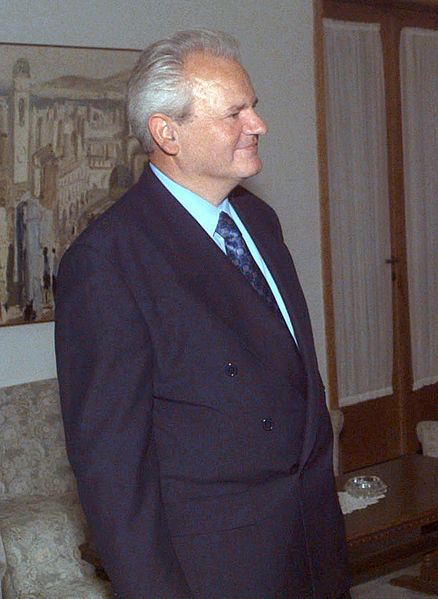
Source: SSGT Lance Cheung. "Milosevic-Lopez", DOD media, September 9, 1996.
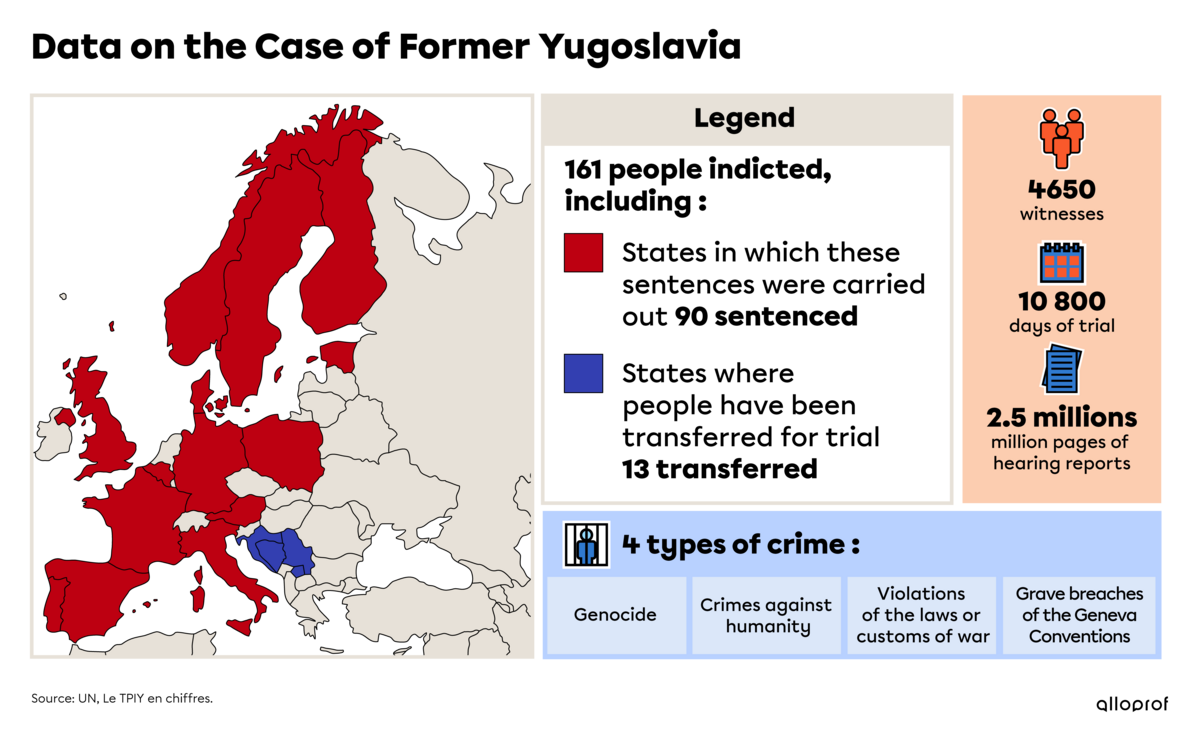
The International Criminal Tribunal for Rwanda (ICTR), based in Tanzania, was established on November 8, 1994. Its purpose was to judge the perpetrators of the genocide aimed at eliminating the Tutsi people. Over 800 000 people were killed in the Rwandan genocide between April and July 1994.
The ICTR, which ended in 2015, made it possible, among other things, to send several soldiers, police, politicians and citizens who had participated in the massacre to prison.
For example, General Théoneste Bagosora, who commanded the Rwandan army responsible for the genocide, was sentenced to life imprisonment in December 2008 and his sentence was later reduced to 35 years in 2011.
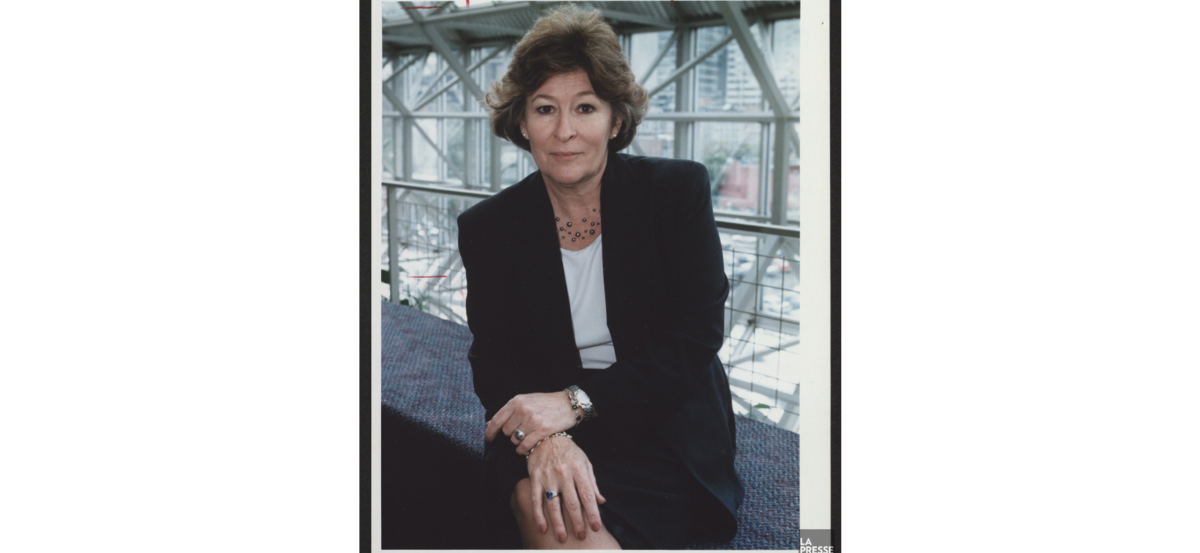
Canadian Louise Arbour was Chief Prosecutor of the ICTY and the ICTR between 1996 and 1999.
Source: Fonds La Presse. "Louise Arbour", BANQ numérique.
Voici une entrevue accordée par Louise Arbour à l’Association canadienne pour les Nations Unies (ACNU) : Les grands Canadiens aux Nations unies : Louise Arbour
Unlike international criminal tribunals, which are temporary, the International Criminal Court (ICC) is a permanent court based in the Netherlands. On July 1, 2002, the ICC was established following the signing of a treaty known as the Rome Statute. Only states that have signed the treaty can bring criminals who reside in or commit crimes in their territory to trial. Canada has signed the Rome Statute.
Like international criminal tribunals, the ICC tries individuals who have committed crimes against humanity, genocide and war crimes. It is important to understand that it only does so at the demand of a country that has signed the treaty.
Since 2012, 7 countries have called on the ICC. The court has tried 23 criminals in 14 different cases.
On July 10, 2012, the ICC sentenced Thomas Lubanga Dyilo to 14 years in prison for war crimes. He was accused of recruiting and using child soldiers under the age of 15 to participate in armed conflicts in the Democratic Republic of the Congo (DRC) from 1993 to 2003.
Brodeur-Girard, Sébastien and collabs. Immédiat, 2009, pp. 216, 217.
Choquette, Michel and collabs. Enjeux, 2010, pp. 284-289, 309, 310.
Ladouceur, Maude and collabs. Globe, 2014, pp. 210.